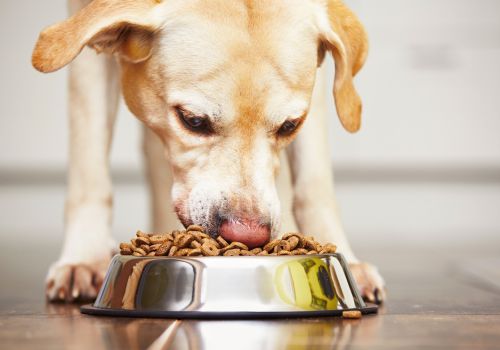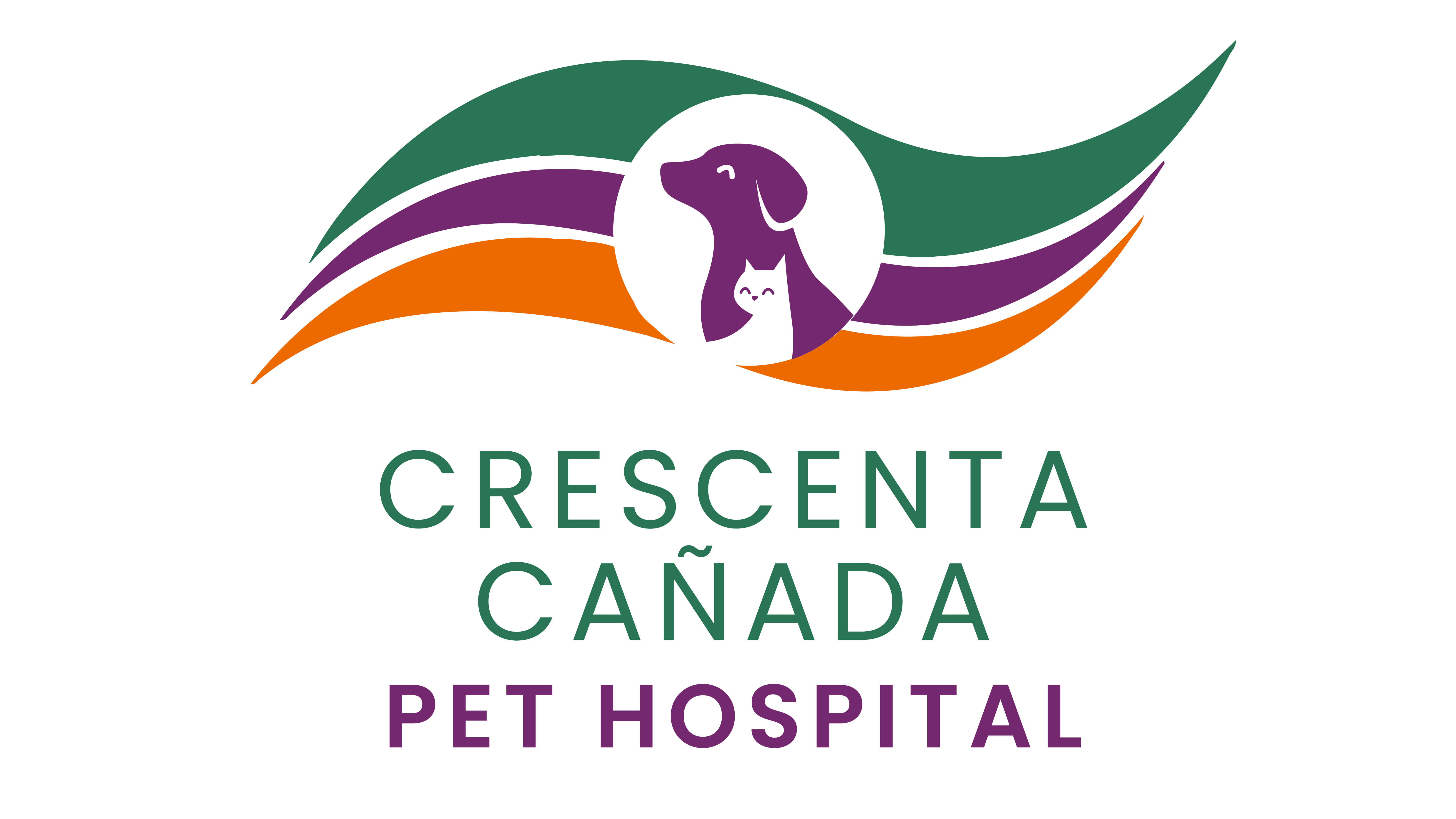
Caring for your dog's health is a top priority for pet owners. As a veterinary practice that strives to provide the highest quality and best service to pet owners, we understand how important it is to make sure your dog is getting the right nutrition. Proper nutrition is essential for a dog's overall health and well-being, and there are many factors to consider when deciding what food to feed your canine companion. As veterinarians, we’re here to help. In this article, we will discuss the life stages of feeding your dog, essential nutrient needs, and tips for assessing if your dog is getting proper nutrition. We will also discuss the different types of dog food available, what to look for in a quality dog food, and when to consider a prescription diet. Read on to learn more about dog nutrition and how to make sure your pup is getting the right food.
What is the Right Food to Feed My Dog?
The type of food you should feed your dog depends on their age, size, and activity level. Puppies need food specifically designed for puppies, as they have different nutritional needs than an adult dog. Smaller breeds may also need special food formulated for their size. The same goes for large and giant breeds. When selecting a commercial pet food, look for one that is labeled complete and balanced according to the Association of American Feed Control Officials (AAFCO). This guarantees that the food contains all the necessary nutrients in the right amounts. You can also opt for fresh or raw diets made from human-grade ingredients.
What Are the Life Stages of Feeding My Dog?
Understanding the appropriate feeding guidelines for different life stages is essential to their overall health and wellbeing. Puppies require more calories, proteins, fats, and higher levels of vitamins and minerals than adult dogs. Generally, puppies should be fed a diet formulated for growth until they are 12 months of age. Upon reaching about 80% of their adult size, their growth rate decreases. And you can transition them to adult food. For healthy young adult and middle-aged dogs (less than five to seven years of age), a diet formulated for adult maintenance is ideal. Pregnant or lactating dogs require a diet formulated for gestation/lactation. Finally, The nutritional needs of senior dogs may vary based on their activity level and health conditions.
How Do I Wean My Puppy and Get Them on Regular Food?
Weaning is an essential process in a puppy's growth and development. It's the gradual transition from the mother's milk to solid food, allowing the puppy to become an independent feeder and reduces the physical strain on the mother as the puppies grow. The weaning process typically begins when puppies are about 3-4 weeks old, as their teeth start to emerge.
The first step is to separate the mother from the puppies for an hour, two to three times a day, allowing the puppies to try solid food. Introduce a gruel of canned or dry puppy food mixed with a puppy milk replacer or water at this time. Then, gradually reintroduce the puppies to their mother, who is allowed to lick the remainder of the food from the dish and clean the puppies. Over time, increase the amount of solid food in the puppies' diet until the gruel is made less liquid and more solid until they can eat canned or dry food without it being diluted. The goal is to have them on a 100% solid food diet by 7 or 8 weeks of age. To ensure a successful transition, it's important to pay attention to quality and taste of puppy foods. We g recommend sticking with high-quality puppy foods designed for young dogs’ growth. Puppies might need encouragement to eat from a pan for their first time so letting them lick gruel off your fingers can help!
.jpg)
Should I Feed My Dog on a Schedule?
Feeding your dog on a schedule has many advantages.
The advantages of feeding your dog on a schedule include:
- Obesity Prevention
- Behavioral improvement
- Easier potty training
- Health monitoring
- Enhanced food safety
- Portion control
Scheduled feeding gives you control over what and when your dog eats. It also helps teach discipline and is an essential part of tracking your pet’s health. However, free feeding can be beneficial for picky eaters, senior dogs, or dogs with specific health issues that might not consume enough food in a single sitting. Ultimately, the choice between free feeding and scheduled feeding might depend on the individual characteristics of your dog. Talk to your veterinarian to learn more about your dog’s unique needs.
How Do I Know if My Dog’s Nutrition is Suffering?
Poor nutrition can lead to many health issues in your dog, such as low energy levels, poor skin and coat condition, weight gain or loss, digestive issues, and weakened immune system. A good way to monitor your pup's nutrition is to pay attention to their body condition score (BCS). The BCS is a scale from 1-9 that evaluates the dog’s body fat level. A BCS of 4 or 5 is ideal for most breeds. If you notice any changes in your pup's BCS, contact your veterinarian as soon as possible for an examination and dietary consultation.
How Do I Know if I am Feeding My Dog Too Much?
Signs of overfeeding in dogs include a body shape where the waist is barely visible, digestive issues such as loose stools or abdominal discomfort, flatulence, lack of energy and exercise, and an overall overweight body appearance. A veterinarian can also help you determine if your pup is getting too much food.
.jpg)
Overfeeding can lead to health problems such as:
- Heart disease
- Diabetes
- Arthritis
- Shortened lifespan
- Enhanced food safety
- Portion control
To prevent overfeeding, it is essential to maintain a well-balanced diet with an appropriate number of calories for the dog’s breed, age, and body type.
What Are the Essential Nutrients My Dog Needs?
Dogs require a combination of essential nutrients for their overall health and well-being, including water, fats, proteins, carbohydrates, vitamins, and minerals. Water is critical for many bodily functions, such as dissolving and transporting nutrients to cells, regulating body temperature, digesting food, and flushing away waste.
Fats protect internal organs, regulate body temperature, promote a healthy nervous system and keep a dog's skin and hair healthy. Proteins are the building blocks of body tissues that are necessary for the growth, maintenance, and repair of muscles, teeth, and bones.
Carbohydrates provide quick energy to power the tissues in a dog's body and help keep the intestines healthy. Vitamins and minerals are necessary for many chemical reactions in your dog's body, such as building bones and keeping them strong.
How Will a Veterinarian be Able to Assess if My Dog is Getting Proper Nutrition?
Veterinarians play a critical role in assessing whether a dog is getting proper nutrition. The assessment process is comprehensive, involving the whole veterinary team, and in some cases, a board-certified veterinary nutritionist. A complete nutritional assessment involves evaluating factors such as age, physiological status, activity levels and disease processes, diet-specific factors such as type of diet, amount fed, and supplements, and feeding management and environmental factors. Veterinarians also consider diet-specific factors, including the safety and appropriateness of the diet, nutrient imbalances, spoilage, and contamination. Beyond the assessment, veterinarians are also crucial in educating pet owners on the importance of nutrition in pet health.
There are So Many Brands of Dog Food — How Will I Know the Best One for My Dog?
Choosing the best brand of dog food for your pet can be a daunting task due to the multitude of brands available in the market. It's essential to understand your dog's nutritional needs, consult with experts, and use reliable resources to make an informed decision. When selecting a commercial pet food, look for one that is labeled complete and balanced according to the AAFCO. Websites like Dog Food Advisor offer comprehensive reviews and ratings of various dog food brands. Consulting your veterinarian or a pet nutrition expert is also extremely beneficial when choosing the best brand and formulation for your pup.
When Would My Dog Need a Prescription Diet?
Prescription diets, also known as therapeutic or veterinary diets, are specially formulated to help manage and treat specific diseases or health conditions in dogs. These diets contain the right proportions of ingredients and nutritional supplements to support the health of dogs with a particular disease or condition. They are an important tool in the management of certain health issues and are often used in conjunction with other treatments.
Your veterinarian can assess your pup's individual needs and decide if a prescription diet is necessary. Conditions that might warrant a prescription diet include weight management, skin irritations, digestive issues, and organ-related illnesses. It's important to note that these diets should only be used under the guidance of a veterinarian. Using them without proper diagnosis or recommendation can potentially harm a dog.
Conclusion
Dog nutrition is an essential part of responsible pet ownership. It's important to understand the different life stages of feeding your dog, the essential nutrients they need, and how to assess if their nutrition is suffering. You must consider several factors when selecting a brand of dog food, such as quality, health conditions, size, breed, age, and activity level. Additionally, it's beneficial to have a veterinarian or expert help in making an informed decision on the best food for your pup. A prescription diet may be necessary for certain dogs with specific health conditions. By following these guidelines and consulting with experts when needed, you can ensure that your pup gets all the nutrition they need for a happy and healthy life. If you live in or near La Crescenta, CA and would like to schedule an appointment, call (818) 248-3963.
